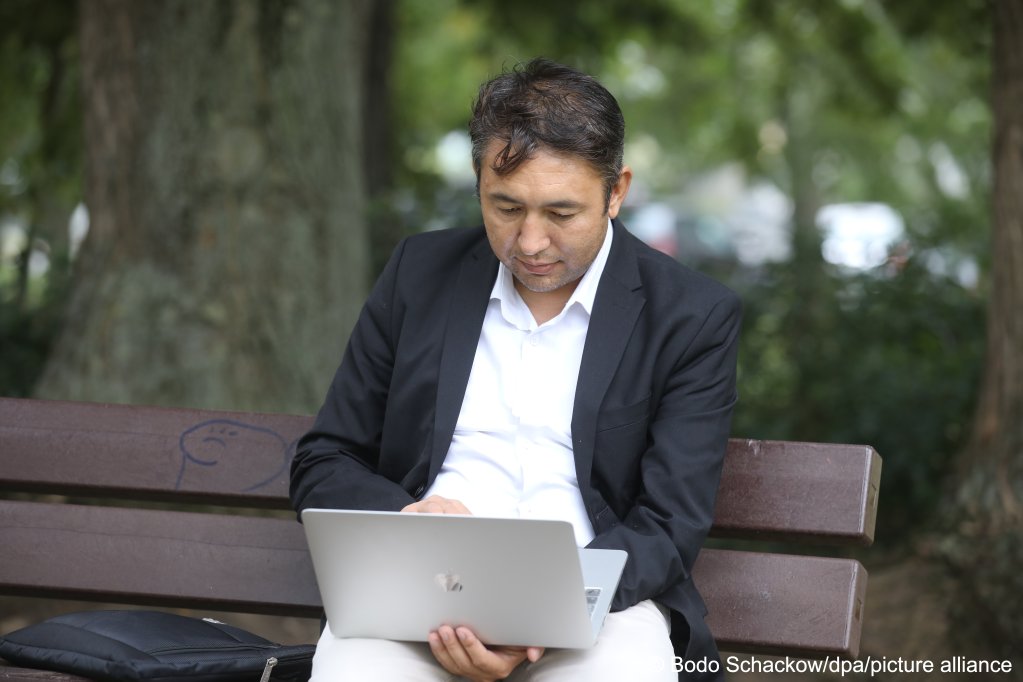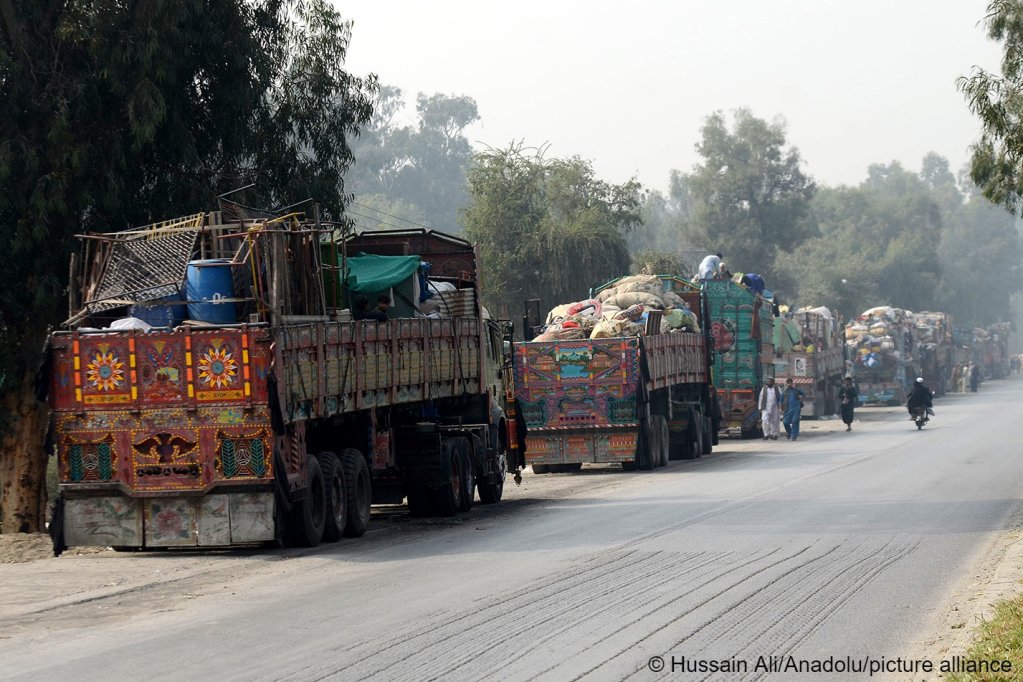A group of Afghan refugees was flown to Germany this week. The exiled Afghans have spent months or years in limbo in Pakistan.
Nearly 200 people were on the flight that landed in Erfurt on Thursday night. The majority were former Afghan staff employed by the German military and their family members, but on board the flight were also "a small number of LGBTQ people" – people at risk because of their sexuality or gender identity, said a spokesperson from the Thuringia interior ministry.
The Afghans were received by immigration and asylum officials and taken by bus to a reception center in Friesland, in the far northwest of Germany.
The charter flight, organized by the German foreign ministry, departed from Islamabad. Those on board had been waiting in Pakistan for their admission to Germany to be approved under two programs: one for Afghans who worked for German NATO troops and government agencies (for example as translators, cooks or drivers), and another for at-risk individuals, such as human rights activists, people who previously worked in justice, politics or education, and people who are vulnerable to violence or persecution due to their sexual orientation or religion.
Read AlsoEU top court rules Afghan women are a persecuted group
Precarious existence
Since the Taliban regained power in Afghanistan in August 2021, more than 600,000 Afghans have fled to neighboring Pakistan, joining over a million Afghan refugees already in the country. Some have since been forced back to Afghanistan under a series of mass expulsions.
Others have remained stranded in Pakistan, facing uncertainty over their applications to be repatriated to Germany, which has been accused of dragging its feet and creating bureaucratic obstacles.
Amin Sarkhosh, who came to Germany 10 years ago after working as a translator for German forces in Afghanistan, has seen the impact of the long wait and insecurity for those in Pakistan.
"The Afghans who are waiting on a visa usually have to wait a very, very long time. Some people I’m in contact with have been waiting for over a year," he told InfoMigrants from Erfurt.

During this period of limbo, Afghans are subjected to a rigorous security screening at the German embassy and many become very fearful about what will happen at the interview, Sarkhosh explains.
"It’s threatening for many people and they get very stressed. They develop mental health problems because they’re anxious about the future, and they also can’t go back to Afghanistan if they get a rejection (from Germany)."
Read AlsoGermany: Former interior minister Seehofer defends Afghanistan relocation process

Challenges to come
After a gruelling interview process that can last up to seven hours, the Afghans who are finally admitted to Germany are "ecstatic", says Sarkhosh, who founded the association 'Move' to help fellow Afghans arriving in Erfurt.
After the initial relief, however, there are challenges. "Many former local staff who come here face a lot of difficulties, for example families with children, who aren’t able to start school immediately."
Authorities in the region struggle to provide the newcomers with the support they need – a result of migrant reception and integration services being overstretched in general, Sarkhosh says.
He regrets that the political and social climate in the eastern states of Thuringia and Saxony – strongholds of the AfD party – is also especially hostile to migrants.
"Those who come here don’t realize the situation, but people who live here for a few years then want to move, for example to western Germany, and it becomes a real worry for them."
